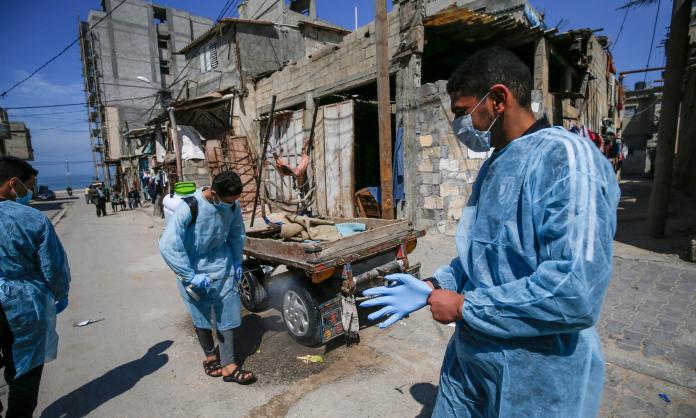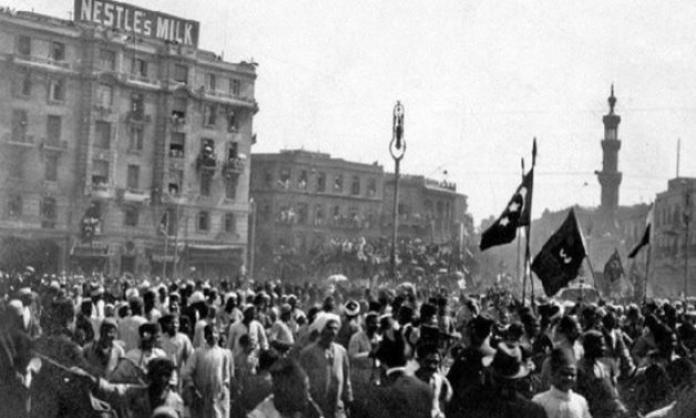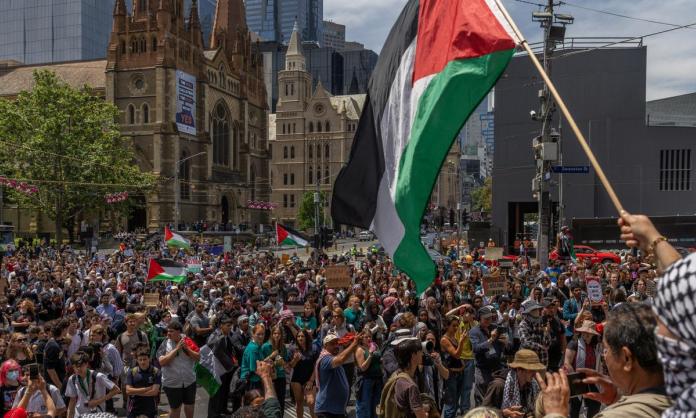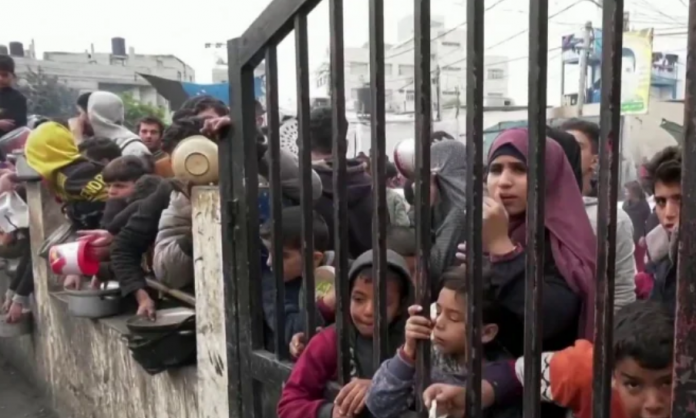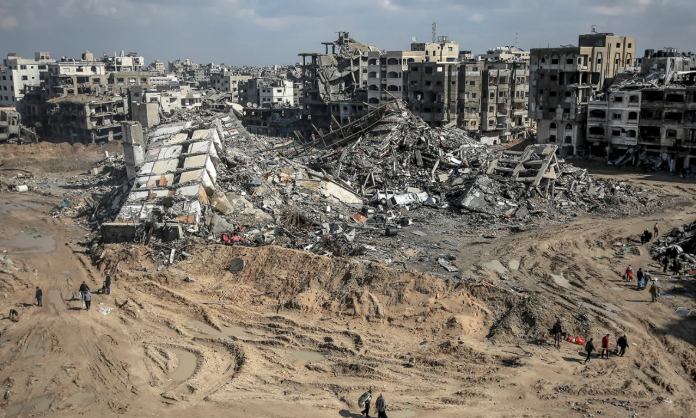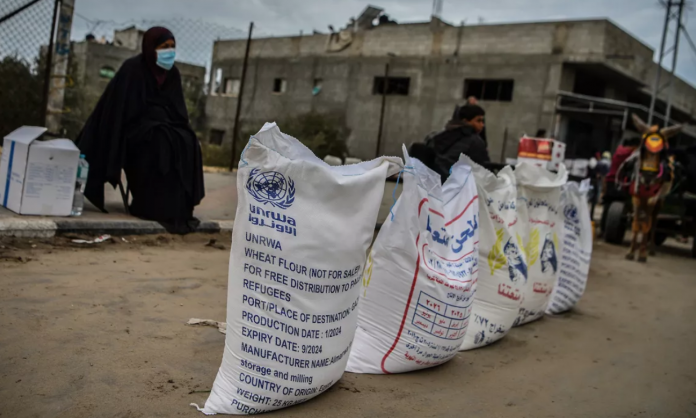An outbreak of COVID-19 in the Occupied Palestinian Territories, where the population lives under Israeli military occupation, will be particularly catastrophic, according to doctors and human rights organisations.
As of 27 March, 91 cases have been confirmed in the territories, including nine in Gaza. The World Health Organisation has warned that Gaza’s healthcare system is not able to deal with the virus. On 21 March, one day before the first cases of COVID-19 were identified at the Gaza-Egypt border crossing, Majdi Thuhair from Gaza’s Ministry of Health told Middle East Eye, “a severe shortage of resources and personnel would make it near impossible to handle an outbreak [of the coronavirus]”, as “we do not have enough intensive care units, personnel or quarantine areas”. In the same week, the Gaza director of the United Nations Reliefs and Works Agency for Palestine, Matthias Schmale, told Agence France Presse that it was “an illusion to think you can manage (an epidemic) in closed-off space like this”.
For more than a decade, Israel has blockaded the Gaza Strip, which is home to almost 2 million Palestinians. People are prevented from moving freely, denied access to food, water and medical supplies, and Gaza’s hospitals have been subject to regular Israeli bombings. The blockade is a continuation of the apartheid occupation policies pursued by Israel since 1967, when it seized control of the territory during the Six Day War.
Since the start of the Al-Aqsa Intifada (uprising) in September 2000, Israel’s collective punishment has become more severe, including the imposition of trade restrictions and the separation of the Gaza Strip from the rest of the Occupied Territories. Israel tightened the noose in mid-2007 when it enacted a full land, sea and air blockade, after the victory of Hamas, the Islamic Resistance Movement, in the Palestinian Legislative Council elections.
According to the United Nations Office of Coordination for Humanitarian Affairs in the Occupied Palestinian Territories, “Palestinians in Gaza remain ‘locked in’, denied free access to the remainder of the territory and the outside world”, resulting in the local economy and living conditions being destroyed.
Israel’s blockade is illegal under international law. According to the Fourth Geneva Convention – to which Israel is a signatory – an occupying power is prohibited from imposing “collective punishment” on an occupied population and is responsible for their health care.
Yet over the last 13 years, Israel has all but destroyed Gaza’s economy and social fabric, including the health system. A 2018 World Health Organization report described the blockade as having “led to the de-development of the health sector”. The Right to Health report also noted that Israel regularly denies travel permits to Palestinians trying to access health care outside of Gaza.
Israel has also blocked access to much needed medical supplies through its “dual-use list”. Items on the list can supposedly be used for both “civilian” and “military” purposes and are therefore restricted. However, according to Gisha, an Israeli human rights organisation which monitors freedom of movement for Palestinians, Israel uses this power arbitrarily, making it difficult to import many items. The World Health Organization reports that Gazan hospitals have been unable to import medical equipment and parts for repairs, including scanning technology, protective equipment for radiotherapy, electronic boards for MRI machines and control boards for x-ray machines, as well as materials for prosthetic limbs.
Following the first COVID-19 cases in Gaza, Israel’s media has started to worry about what a possible outbreak in the besieged territory could mean – not for the Palestinians trapped there, but for the Zionist state. Anna Ahronheim, a Jerusalem Post military reporter, wrote that if the virus takes hold in Gaza and thousands of Palestinians descend on the border, it would be a “nightmare” because “there is no way to spin footage of [Israeli] troops firing towards Palestinians seeking medical care”.
In the West Bank, the Palestinian Authority on 22 March instituted a 14-day ban on travel between Palestinian governates. Israel responded by further entrenching its apartheid policies. Human rights organisation B’Tselem reports that the Israeli military bulldozed eight tents, two set-up as a field hospital clinic, in Khirbet Ibziq in the Jordan Valley.
“Israel’s military is devoting time and resources to harassing the most vulnerable Palestinian communities in the West Bank”, the organisation notes. “Shutting down a first-aid community initiative during a health crisis is an especially cruel example of the regular abuse inflicted on these communities, and it goes against basic human and humanitarian principles during an emergency.”
Similarly, when the Palestinian Authority announced the first cases of COVID-19 in Bethlehem, Israel immediately locked down the Palestinian city, citing health and safety concerns. But the nearby illegal Israeli colony of Efrat, where 34 settlers have also tested positive, has not been locked down.
Inside Israel, new emergency regulations, purportedly relating to COVID-19, prohibit Palestinian political prisoners from speaking with their lawyers, except in the event of an immediate court appearance. According to Oren Ziv, writing in +972 Magazine, the new rules prevent “thousands of inmates, including child prisoners, from receiving legal counsel or filing petitions and complaints against their terms of imprisonment”.
Despite talk of unity and “pulling together”, those in the Occupied Palestinian Territories can expect the Zionist state to use the spread of COVID-19 to further oppress them, entrenching its apartheid regime and military occupation. Today, more than ever, solidarity with the Palestinian people is needed – not only to help them confront and contain COVID-19, but to end Israeli apartheid.
Kim Bullimore is a socialist and volunteer with the International Women's Peace Service. She is the author of "BDS and the Struggle for a Free Palestine", published in Left Turn: Political Essays for the New Left. She was the co-organiser of the first national Australian Boycott, Divestment, and Sanctions conference. She runs a blog at livefromoccupiedpalestine.blogspot.com




